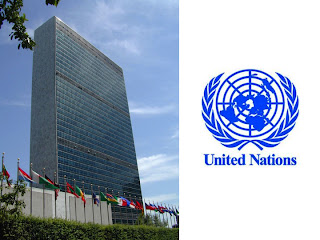Monday, July 29, 2013
California Association For Medical Laboratory Scientists Posts Carvalho's Views On Shortage Of Trained Clinical Microbiologists
Special thanks to The California Association For Medical Laboratory Scientists for posting our articles on the shortage of trained clinical microbiologists in the state of California. We will be monitoring the status of the profession over the next year to see how the California State Legislature and area universities and hospitals address the issues concerning the profession.
Revisiting The Millennium Development Goals Years Later
A number of years ago, I published papers revealing how biologists could engage the wider global health community. This year, I would like to explore the status of the millennium development goals in light of the global economic crisis. During the year, I will post articles and information by the United Nations, global health experts, and economists revealing their opinions on where these millennium development goals stand at this time. The year 2015 was considered a big year for the world community with respect to global healthcare and the eradication of abject poverty.
Hospitals Within Vietnam, Brazil, and Argentina Begin Exploring Methods For Speciating The Enterococci
Hospitals within the nations of Vietnam, Brazil, and Argentina are beginning to review the methods of speciating Enterococcus faecalis from Enterococcus faecium using the cost-effective methods from Dr. Carvalho's laboratory. Within the coming years, it may be possible that these methods will be employed in a number of developing world hospitals.
OUR COMMON ENEMY: COMBATTING THE WORLD'S DEADLIEST VIRUSES TO ENSURE EQUITY HEALTH CARE IN DEVELOPING NATIONS
In a previous issue of Zygon (Carvalho 2007), I explored the role of scientists—especially those engaging the science-religion dialogue—within the arena of global equity health, world poverty, and human rights. I contended that experimental biologists, who might have reduced agency because of their professional workload or lack of individual resources, can still unite into collective forces with other scientists as well as human rights organizations, medical doctors, and political and civic leaders to foster progressive change in our world. In this article, I present some recent findings from research on three emerging viruses—HIV, dengue, and rotavirus—to explore the factors that lead to the geographical expansion of these viruses and the increase in frequency of the infectious diseases they cause. I show how these viruses are generating problems for geopolitical stability, human rights, and equity health care for developing nations that are already experiencing a growing poverty crisis. I suggest some avenues of future research for the scientific community for the movement toward resolution of these problems and indicate where the science-religion field can be of additional aid
http://onlinelibrary.wiley.com/doi/10.1111/j.1467-9744.2009.00985.x/abstract
http://onlinelibrary.wiley.com/doi/10.1111/j.1467-9744.2009.00985.x/abstract
The Scientist As Statesman: Biologists And Third World Health
One of the most threatening problems the world faces is the growing poverty crisis and the related human rights inequalities and the spread of diseases in underprivileged areas. Human rights and relief organizations try hard to contain the devastation of these interconnected difficulties. What is the role of the biomedical scientist in this endeavor? The challenges that biomedical scientists face in their research lead us to question whether scientists can go beyond the time-consuming realm of experimental investigation and engage the issues of society in a more public way. I suggest how the scientist's role can be expanded in our complex and precarious world, introducing the idea of the modern biomedical researcher as scientist, scholar-philosopher, and statesman for the scientific community and the larger human rights community. I provide examples of where the scientist can interface with human rights organizations, medical doctors, political and civic leaders, and the science-religion dialogue. My argument reveals the emerging role of the biomedical scientist as one of public service in addition to and beyond the realm of the experimental investigator. This role, however, is formidable, and I list some of the obstacles it entails.http://onlinelibrary.wiley.com/doi/10.1111/j.1467-9744.2007.00289.x/abstract
Carvalho Receives The Faculty Legacy Award
Dr. John Carvalho has received the faculty legacy award from the Emeritus Faculty Association of California State University Dominguez Hills for his biomedical research on pathogenic enterococci.
Frontiers in Biology Publishes Dr. Carvalho's Research On The Enterococci
Visit the science journal "Frontiers in Biology" to see Dr. Carvalho's latest articles on biomedical research on the enterococci.
http://journal.hep.com.cn/biology/index.jsp
http://journal.hep.com.cn/biology/index.jsp
Dr. Carvalho's Laboratory Publishes Review Of The Enterococci
One of the goals of Dr. Carvalho's laboratory is to provide simple, cost-benefit, high-throughput technologies to distinguish various bacterial species from each other. These technologies are helpful in developing world hospitals, where the vast majority of the budget for health science is earmarked for HIV/AIDS, tuberculosis, and malaria. New technologies that are affordable for these developing world hospitals will improve their clinical microbiology work. This review gives an overview of one bacterial genus, Enterococcus, and discusses the issues facing clinical diagnostics for this genus in the developing world hospitals.
Thursday, July 25, 2013
Subscribe to:
Posts (Atom)







